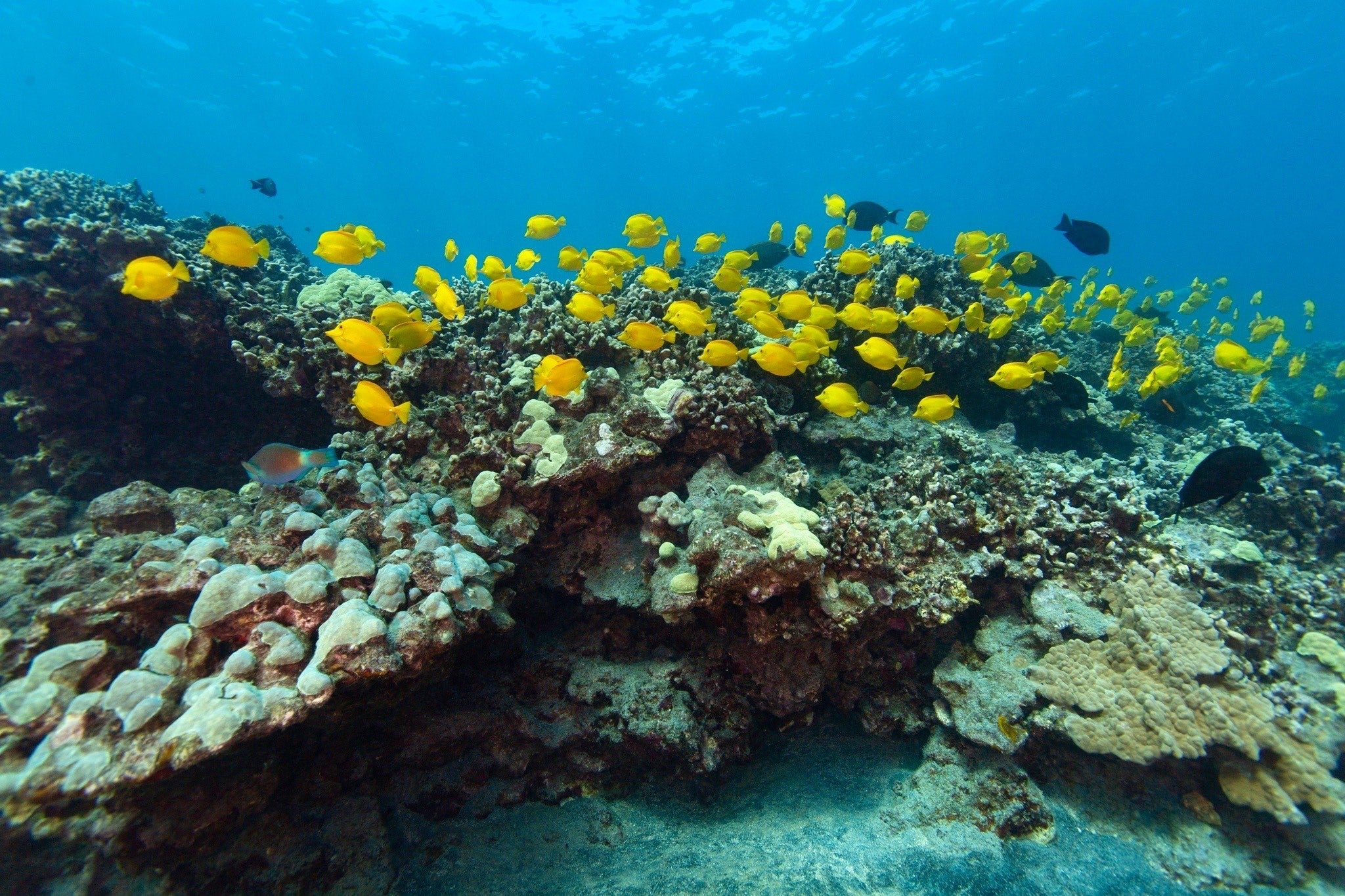Coalition Sues Hawai‘i Land Board to Halt Reopening of Aquarium Pet Trade
The Hawai‘i Land Board's failure to reject impact statement violated state law
Contact
A coalition of conservation groups, Native Hawaiian fishers, and cultural practitioners took legal action today to require the Hawai‘i Board of Land and Natural Resources (BLNR) to protect West Hawai‘i’s reefs and coastal areas from commercial extraction of fish and other wildlife for the aquarium pet trade. In the complaint filed on their behalf by Earthjustice, the coalition is challenging the Board’s failure to reject the latest environmental impact statement submitted by trade representatives, which the group says violates state environmental protection laws.
“After everything we’ve done to try get a handle on this problem, it makes no sense for BLNR to give the industry a pass,” said Miloli‘i fisherman Wilfred “Willie” Kaupiko, who for over 30 years has fought to protect West Hawai‘i reefs from the aquarium pet trade’s harmful effects. “How will we protect these resources for future generations if these agencies aren’t looking out for us here in Hawai‘i?”
Kaupiko and his co-plaintiffs have led the charge to rein in the loosely regulated aquarium pet trade, which routinely extracted hundreds of thousands of small, attractive fish from Hawai‘i reefs every year. In 2012, the coalition took the issue to the courts, and after a decisive win at the state supreme court in 2017, have participated extensively in the court-ordered environmental review process orchestrated by a Virginia-based pet trade association.
After the Board unanimously rejected the industry’s first environmental impact statement (EIS) for West Hawai‘i Island in May 2020, a revised version was prepared. At a June 25 public meeting, the Board failed to reach a majority vote on the revised statement, which resulted in the revised statement being “accepted” by operation of law on July 8. The revised document repeated many of the same errors and omissions as the rejected first attempt.
“If your first attempt at an EIS is rejected, you can try again, but the law is crystal clear that you have to fix the problems in the first one,” said Earthjustice attorney Mahesh Cleveland. “These collectors, this industry, and now the Board have completely ignored that requirement; the Board cannot allow for reopening the trade without demanding that the applicants address head-on the many flaws which demanded rejection last year.”
“BLNR’s failure to reject this latest EIS is a travesty for our reefs,” said Rene Umberger, Executive Director of For the Fishes. “BLNR’s lack of decisive action tells aquarium trade players that there’s no need to comply with Hawai‘i’s environmental protection laws. No doubt other private interests will take note.”
“Hawai‘i’s reefs are the lifelines of our ocean,” said Maxx Phillips, the Center for Biological Diversity’s Hawai‘i director and staff attorney. “They put food on our families’ tables, provide habitat for a myriad of endemic species, and shelter our islands from ever increasing storms and sea-level rise. BLNR failed us all by rubber-stamping this EIS. There is no place for the industry’s false narrative, skewed analysis, or outdated science in the fight to protect Hawai‘i’s reefs.”
“We will never stop pushing for our government to do the right thing for our communities and natural resources,” said Miloli‘i fisherman Ka‘imi Kaupiko. “To us, this is not just about our keiki and future generations, but everyone else’s too. The grandchildren of these commercial collectors should also be able to see healthy vibrant reefs just like we did when we were kids.”
“These Kinolau of Kanaloa have been exploited by wildlife traffickers of this aquarium trade for 40 years,” said Mike Nakachi, a Kahu Manō from Kailua-Kona. “The Kinolau are the ancestors of this place, they belong here, this is their ancestral home. We are saddened that BLNR has abdicated its responsibility to our people and environment in order to appease a handful of collectors who profit from sending these Kinolau away to die on the continent. But we will never stop fighting for the ‘āina momona (abundance) that our ancestors left in our care.”
“To restore the beauty and abundance of our reefs, the people and agencies must work hand in hand for the greater good of Hawai‘i nei,” said Kai Palaoa founder and Kanaloa practitioner Kealoha Pisciotta. “We are very disappointed that BLNR went against their previous decision and bent under the pressure of this profit-hungry industry.”
For decades, commercial aquarium fish collectors plundered West Hawai‘i waters for small reef fish, packaging the live fish in plastic bags and exporting them to aquarium fish wholesalers and retailers across the continental United States. The default “acceptance” of the new impact statement could lead to reopening of commercial collection in West Hawai‘i, without the disclosure and mitigation of known environmental consequences required by law.

Additional Resources
About Earthjustice
Earthjustice is the premier nonprofit environmental law organization. We wield the power of law and the strength of partnership to protect people's health, to preserve magnificent places and wildlife, to advance clean energy, and to combat climate change. We are here because the earth needs a good lawyer.